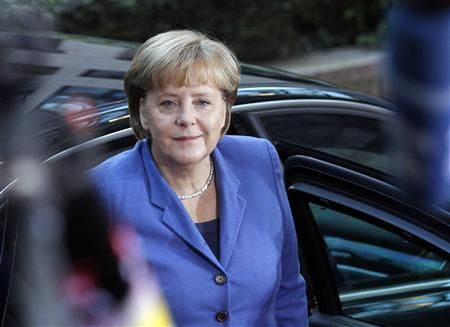Merkel Wants Change to EU Charter by End of 2012: Sources

German Chancellor Angela Merkel is seeking to speed up reform of the European Union treaty, and she wants all 27 European Union member states to give their approval by the end of next year, government sources said Sunday.
Merkel won a victory last month in getting the EU to consider amending the Lisbon treaty, which took more than eight years to negotiate, arguing it was necessary if the bloc was to set up a permanent system for handling financial crises.
Herman Van Rompuy, president of the European Council, is due to report back in December on how limited treaty change proposals might be carried out. The initial aim was to get the amendments ratified by all member states by mid-2013.
Now Germany wants concrete proposals to be ready at the latest by next spring, so that a so-called government convention can be agreed.
The government is pushing for a limited amendment to the treaty to allow greater influence over states that bust budget rules and agreed obligations on stability and consolidation, a source told Reuters. This should be done and dusted by the end of 2012.
Many of the EU's member states are opposed to altering a charter that they struggled to ratify in the first place, as they fear difficult referendums on further change.
Some states also believe more stringent action can be taken against profligate Eurozone members without changing the charter.
Merkel has suggested she would like to see the EU have the right to interfere in national budgets in extreme cases where Eurozone stability is put at risk. But Germany has stopped short of that in its proposals and asks rather for sanctions for those that breach deficit rules to be written into the treaty.
This would involve the right to challenge states at the European Court, to have their budgets declared void, without meddling further in the details.
Under the German proposals, the EU commission would also play a stronger role in monitoring budgets.
(Reporting by Andreas Rinke; Editing by Andrew Heavens)
© Copyright Thomson Reuters 2024. All rights reserved.






















